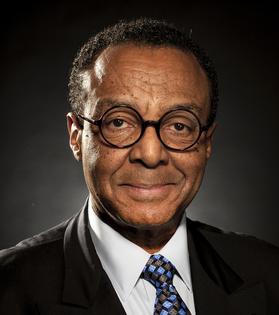Curb Your Optimism About the Middle East. Turn On Your Realism
Some of my friends who know more about Middle East affairs than I do caution me against having too much optimism. Life is complicated, they note, especially in Middle East politics.
I am reminded of the late Israeli Foreign Minister Abba Eban’s famous quip about negotiating with the Palestinian leaders in 1973: They never miss an opportunity to miss an opportunity.
That quip came back to mind after Hamas gunmen from Gaza launched bold and bloody attacks on southern Israel, killing more than 1,000 people — the vast majority of whom were civilians — and igniting a war with Israel that threatens to rumble across the entire Middle East.
The shock caused a sense of diplomatic whiplash in neighbors like Saudi Arabia, which had been nearing a historic normalization agreement.
Among other benefits, the talks would have opened the door to economic and political deals, including a formal security arrangement with the United States and boosted the kingdom’s civilian nuclear program.
But then, as if to say, “Hey, what about us?,” Hamas, the terrorist group that rules Gaza, attacked.
Serious questions still rage about how Hamas could have organized, rehearsed and pulled off such a grand and bloody scheme and catch Israelis off guard.
But many who ask why it happened probably should turn to the recent negotiations in Riyadh for clues.
The very fact that the meetings brought Israeli negotiators to the Saudi kingdom, land of Islam’s holiest shrines, Mecca and Medina, was a monumental breakthrough. The kingdom has banned Jews since the days of the Prophet Muhammad.
But, as much as well-meaning outsiders — like me — might feel delighted by the prospect of people from different backgrounds being “able to sit down together at the table of brotherhood,” as the Rev. Martin Luther King, Jr., preached, there are many others for whom such a move is strictly forbidden.
To help me understand how deep-seated the politics of such a move can be, my friend and Tribune colleague Ron Grossman, a former history professor, offered a personal anecdote.
He was subbing for the Tribune’s Jerusalem correspondent when Secretary of State Madeleine Albright came to Israel in 1998, hoping to re-energize stalled peace talks between Palestine Liberation Organization head Yasser Arafat and Israeli Prime Minister Benjamin Netanyahu.
While there, Ron arranged to visit with Sheikh Ahmed Yassin, a nearly blind quadriplegic politician and holy man who founded Hamas.
“Yassin was frail, like a leaf about to fall,” Ron told me in an email. “When I asked his policy, he replied: ‘It is necessary to kill Jews.’ I told the interpreter that I’m Jewish. Does that apply to me?”
“No,” the interpreter replied. “The sheikh says that you, having been a guest, will always be welcome here.”
That was a relief, I’m sure.
Or, as Ron put it, “It was the moral imperative of the desert: A thirsty man must be given water.”
Indeed. Politicians may have to talk about compromise and other such niceties. But, as Ron put it, that’s “less likely to draw an audience in Gaza, where jobs are scarce, families have lots of mouths to feed, and the birth rate doesn’t decline with urbanization, as in the West.”
As far at the sheikh was concerned, the way out of the Palestinians’ misery was the way of the gun, not doves of peace.
And indeed, we have seen others who tried to have it both ways, like Anwar Sadat, who offered gifts to Israeli Prime Minister Golda Meir’s grandchildren and talked seriously about peace, only to be assassinated by a Palestinian nationalist.
This might help explain why, after President Bill Clinton convinced Prime Minister Ehud Barak to accept a historically generous two-state solution in 2000, Arafat said: “No.”
Who knows how much the possibility of being assassinated had to do with Arafat’s decision.
What I do know is that we make a mistake when we try to judge other people’s decision without taking into account how much their experiences and circumstances differ from our own.
Optimism has its virtues but, let us not forget, so does skepticism.
You don’t have to be antisemitic to appreciate Hamas, many Palestinians will tell you. Hamas provokes a lot of hatred — often justifiably, in my view — and that includes other Palestinian organizations. But it has been fighting for Palestinian rights when others were not.
That carries a lot of weight with people who feel abandoned, confined and isolated in the world.
That doesn’t mean they‘re always right. It only means they deserve to be heard.
========
(E-mail Clarence Page at cpage@chicagotribune.com.)
©2023 Clarence Page. Distributed by Tribune Content Agency, LLC.
(c) 2023 CLARENCE PAGE DISTRIBUTED BY TRIBUNE MEDIA SERVICES, INC.


























Comments